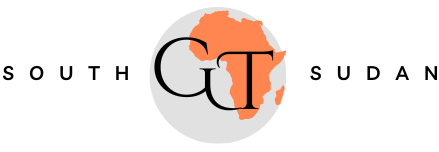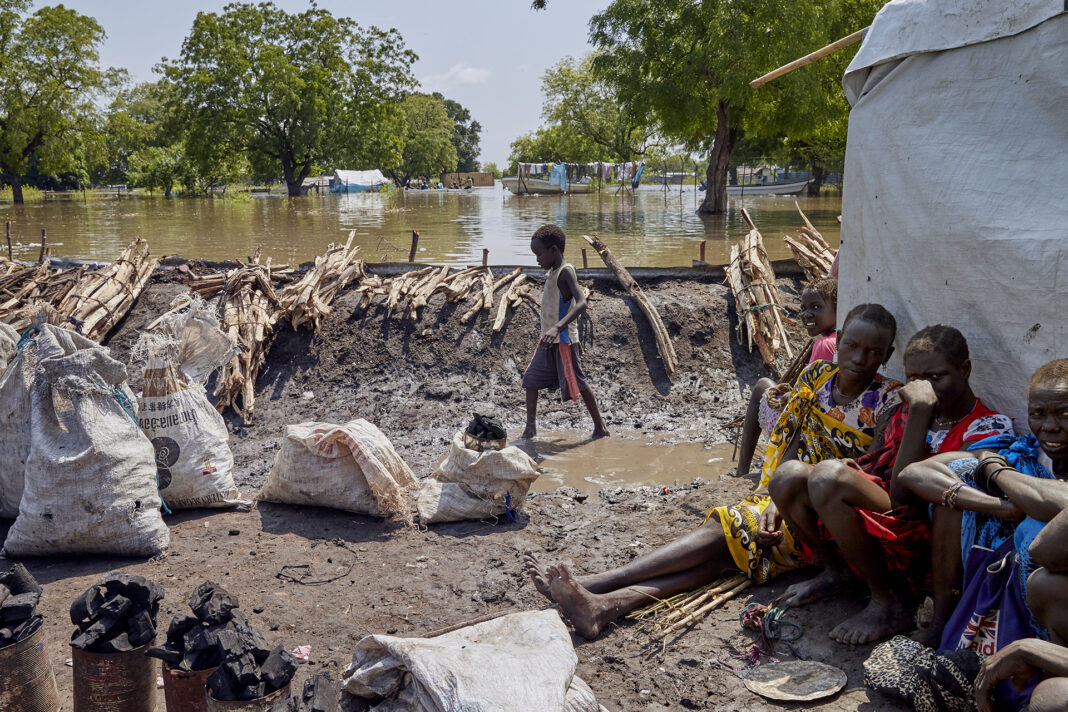Group of flood-affected women selling firewood in Unity State. |File Photo|
After thirteen years of independence, South Sudan’s healthcare system remains dysfunctional and broken by many years of inland conflicts, climate change, and perilous crude oil explorations.
A few weeks ago, the members of the transitional national legislative assembly raised a motion about the conditions of people settling around the oil-producing areas and the impact of oil leakage on their lives.
This follows the increasing reports of mothers giving birth to children with abnormalities. Some activists criticized the scrupulous foreign oil companies for disposing of the chemicals recklessly, polluting the water points that people and animals drink from.
Since 2020, South Sudan has been grappling with heavy rainfall and rising water levels along the White Nile, which have led to massive flooding in many parts of the country.
The IGAD Climate Prediction and Applications Centre (ICPAC) has predicted a higher probability of early wetter-than-normal conditions across most parts of the Greater Horn of Africa from March to May 2024, including South Sudan.
At least seven out of ten states of South Sudan are already at risk of more floods this year which could make the accessibility to humanitarian intervention difficult. There is a likelihood that the floods will increase the rates of waterborne diseases in the lower parts of South Sudan.
In an effort to protect communities from diseases resulting from environmental and health setting contamination, the Ministry of Health, supported by the World Health Organization (WHO) and other partners, has embarked on an ambitious mission with support from the American people through USAID and other agencies such as, the EU Humanitarian Aid (ECHO), and Resolve to Save Lives.
The support designated to strengthen the upscale infection prevention and control (IPC) and water, sanitation, and hygiene (WASH) measures in healthcare facilities to minimize the risk of infection transmission and water-borne related outbreaks.
This has had a profound impact on the healthcare system, affecting nearly one million people and subsequently resulting in widespread disruption to normal patterns of life in the affected locations.
In response, WHO has intensified its support to the Ministry of Health, focusing on implementing effective IPC/WASH measures.
This comprehensive strategy encompasses water quality testing, hand hygiene promotion, healthcare waste management, and the implementation of IPC guidelines through multimodal strategy improvement and standard operating procedures.
Additionally, attention is given to addressing healthcare-associated infections and antimicrobial resistance, recognizing their significance in the current context.
Despite the challenging circumstances, WHO has successfully trained over 648 healthcare workers from 2023 to March 2024, showcasing the resilience and dedication of the healthcare system.
These workers have been instrumental in bolstering the healthcare system’s resilience and deploying laboratory experts and public health officers nationwide to strengthen water quality surveillance and sanitary inspection efforts, including conducting onsite water quality tests.
As part of the intervention, a total of 967 water samples were collected and tested for physical, bacteriological, and essential chemical parameters, the test was conducted onsite and at the National Public Health Laboratory in Juba.
Findings revealed that 581 samples tested positive with fecal Coliforms (E. coli), representing 60% of the contamination rate of water points across the country.
In response, WHO has taken swift action, procuring and distributing over 1521 assorted IPC/WASH supplies, including color-coded waste bins, disinfectants, and water quality testing equipment, to several hotspot locations and counties.
Reflecting on the challenges ahead, Dr Humphrey Karamagi, the WHO Representative for South Sudan, said, “In our efforts to reduce infection and needless death due to infections, we place infection prevention at the Centre stage of all our health interventions.”
Dr Karamagi underscored WHO’s commitment to strengthening IPC programs, including water quality surveillance, and supporting the development and implementation of national IPC guidelines across all levels of healthcare facilities.
As part of strengthening the IPC Programme, WHO is implementing measures to ensure continuous technical support to the Ministry of Health by building the capacity of healthcare workers through refresher training, job mentorship, and giving strategic direction for attaining the minimum requirements for IPC Programs.
WHO is also working closely with WASH and Health Cluster Partners to improve WASH in health facilities and promote the implementation of Multi-Modal Improvement Strategies and integrate IPC into existing health structures.
Golden Times | South Sudan




